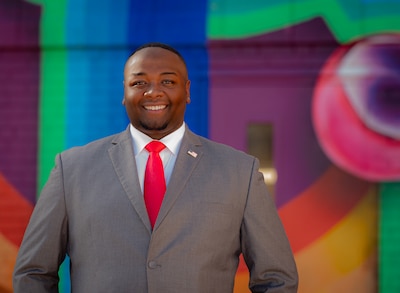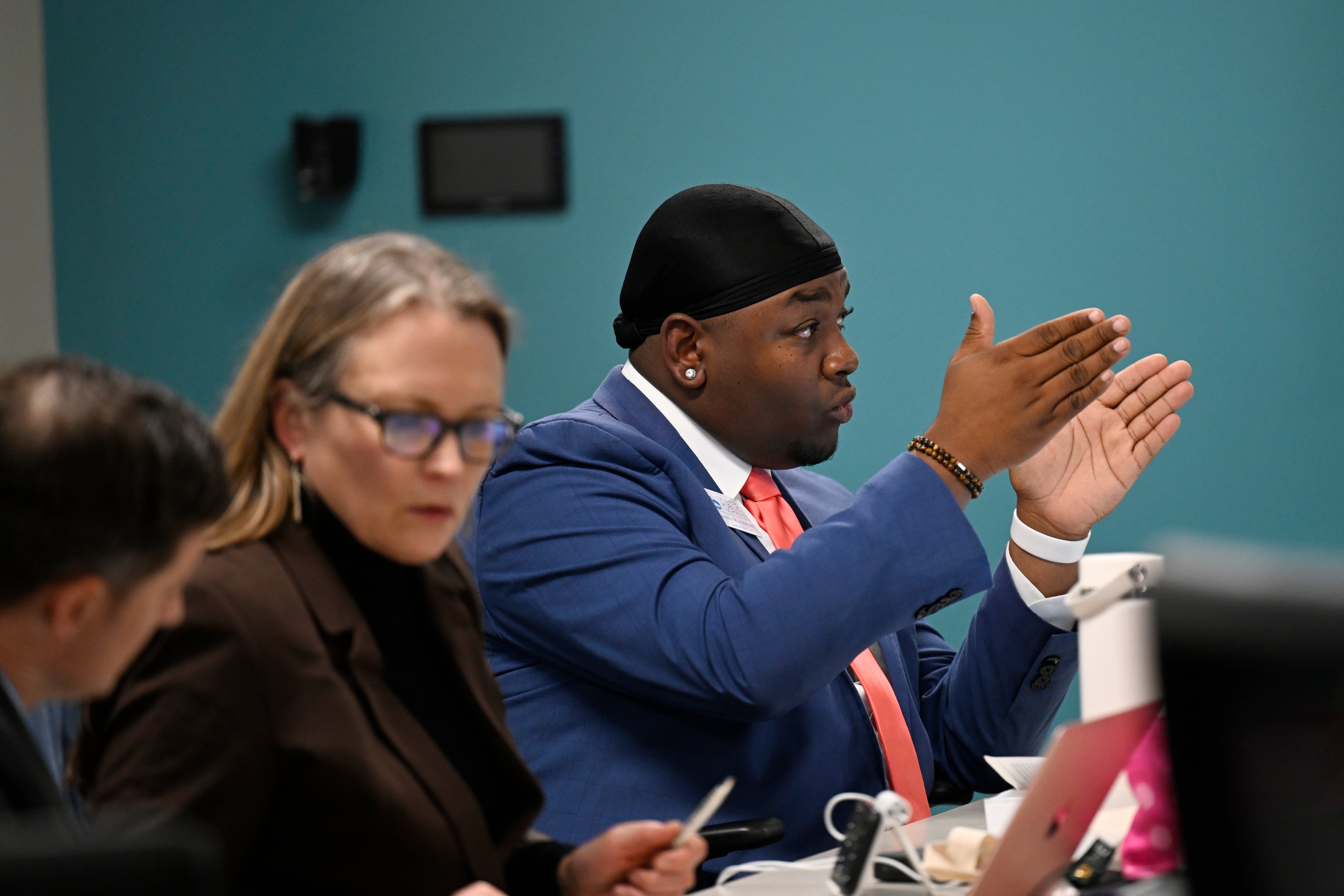Update: Auon’tai Anderson announced in June that he was dropping out of the school board race to run for a seat in the state House of Representatives. He will not appear on the Nov. 7 ballot for Denver school board.
The Denver school board’s most high-profile member announced Wednesday — 11 months before the next election — that he’s seeking a second term on the board.
Auon’tai Anderson, 24, was elected in 2019. His election helped “flip” the board majority to members backed by the teachers union and opposed to education reform strategies. A Denver Public Schools graduate who worked for the district before being elected, Anderson represents the city at large and has been board vice president for the past year.
In an interview, he said he was set to run for Denver City Council next year but changed his mind after the board’s recent school closure debate. Superintendent Alex Marrero had recommended closing 10 schools with low enrollment. Anderson, along with hundreds of parents and teachers from the targeted schools, spoke out against the closures. In the end, the superintendent narrowed his recommendation before the board voted down all closures.
“I realized through the debate on school closures the communities that are hurting,” Anderson said. “I truly believe that if I was not on this board when that conversation took place, I believe that this board may have made the decision to close those schools.”

Anderson has been outspoken on many issues. After George Floyd’s murder, he helped lead an effort to remove police officers from Denver schools. He has supported LGBTQIA+ students, including by pushing to mandate all-gender restrooms in schools.
Inspired by the advocacy of Black students, Anderson helped shepherd a resolution directing Denver Public Schools to diversify its curriculum to include more Black, Hispanic, and Indigenous history. And he pushed the district to raise pay for paraprofessionals to $20 an hour.
But his tenure also has seen controversy. Anderson’s board colleagues censured him last year, saying his behavior had violated expectations.
The censure came after a five-month investigation into sexual assault and misconduct allegations, the most serious of which were not substantiated. But investigators did find that Anderson had flirtatious contact with Denver students on social media and made social media posts that could be perceived as intimidating toward witnesses in the investigation. Some community members and students called for Anderson to resign from the board.
Asked about the investigation findings, Anderson said he has stumbled in his leadership.
“That process of the last year showed gaps in my leadership, areas where I have been able to reflect and grow from,” he said. In the aftermath of the investigation, which he said caused him to have a mental health crisis, he said he has “a renewed spirit to continue this work.”
More recently, Anderson has clashed with board President Xóchitl “Sochi” Gaytán, who was elected last year. During a board meeting Monday, Anderson apologized to Gaytán for “our interpersonal relationship sometimes rising to the level where it has been a public show.”
“I know that I have contributed personally to some of what some folks would describe as dysfunction,” Anderson said. “I just call it interpersonal issues. We may not always agree with one another or the approach or how it’s executed, but that’s never warranted to some of the infighting that has been caused that I have contributed to on this board.”
In an interview, Anderson said he respects Gaytán and wants to support her for however long she is president. (Board officers are elected every two years.) He said it’s time to move past the distractions and “get back to work for kids.”
The board has a lot of work ahead, he said, including addressing declining enrollment, increasing graduation rates, and closing the district’s test score gaps, which are the largest in the state between Black and Hispanic students and white students. He noted that if he’s re-elected, his 1-year-old son will start as a student during his second term.
“He’s a multilingual Afro Latino student,” Anderson said of his son, Khalil. “I want to make sure he has everything he needs to be well equipped to read and do math at grade level. That’s something that he’s not guaranteed at this moment.”
Melanie Asmar is a senior reporter for Chalkbeat Colorado, covering Denver Public Schools. Contact Melanie at masmar@chalkbeat.org.







